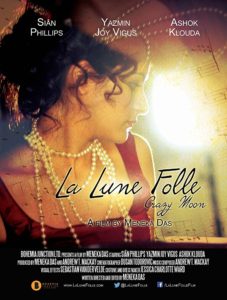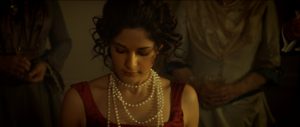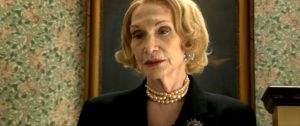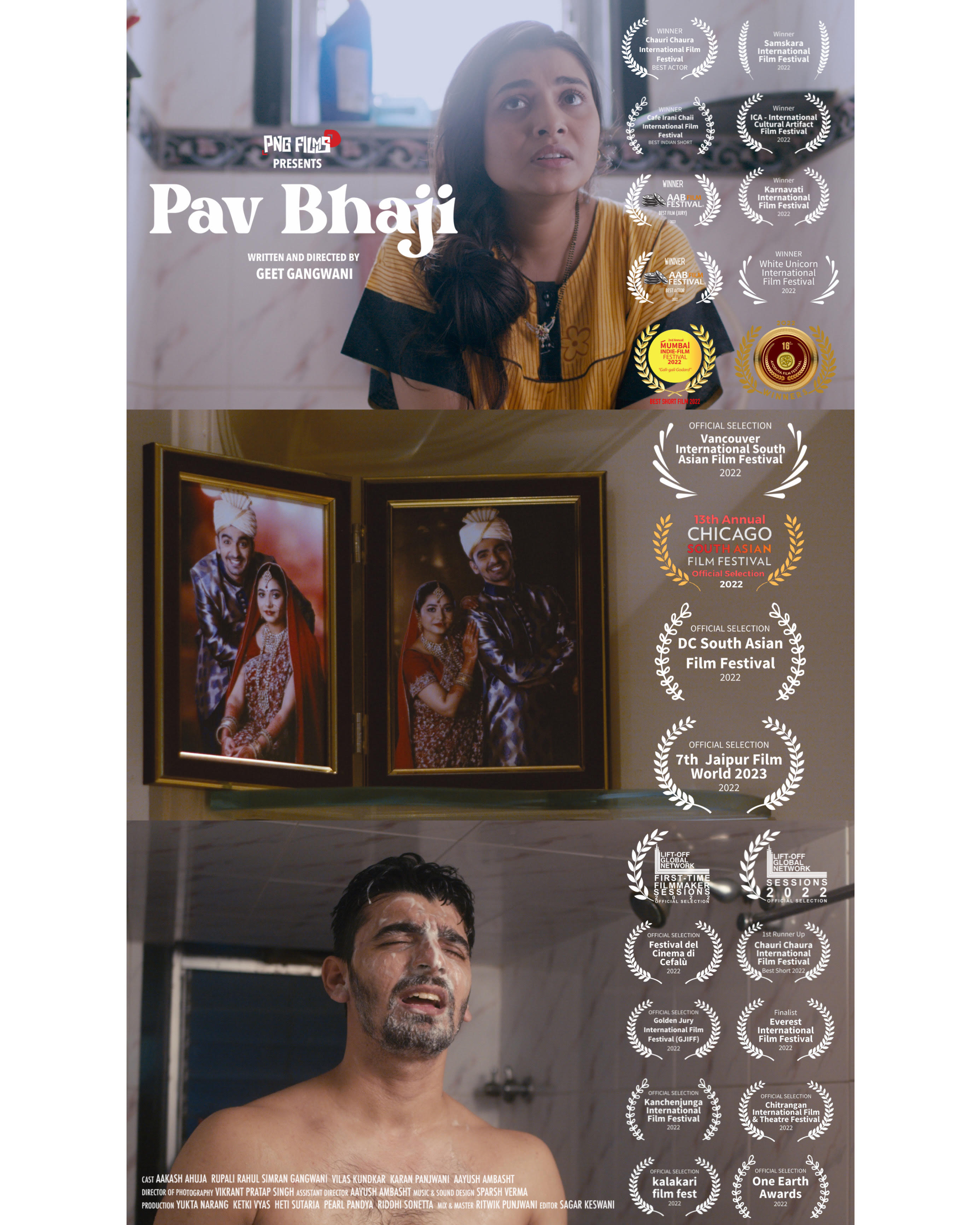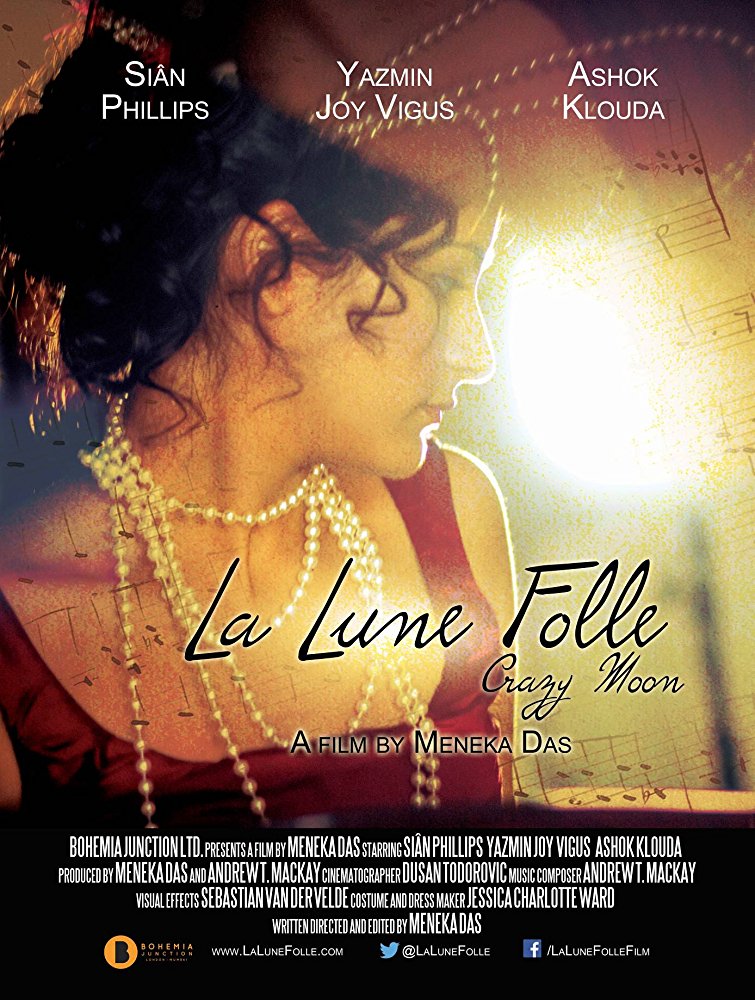
DFW SAFF 2018 Short Film Review “La Lune Folle”
WATCH THE TRAILER HERE
First, the Recap:
What is it to face one’s fears? Will it simply be that basic need to find within ourselves the fortitude to try our best, to overcome the anxiety, and realize we are able to accomplish the task at hand? Or, will it become a moment that’s even more acutely transformative, forever changing our perspective? Already reeling from the loss of someone extremely dear to her, a young Indian girl named Carly (Yazmin Joy Vigus) nervously sits in a dimly lit hall awaiting her audition time at a highly reputable Conservatory of Music. Feeling an initial sense of judgment from other students as they pass her by, the head of the school, Miss Dubois (Sian Phillips) finally appears.
Intimidating in stature and demeanor, Miss Dubois’ regard for Carly seems stilted from the start, a not-so-veiled disdain perhaps, that further causes Carly to experience an even more self-conscious apprehension. Meeting the other primary judges, Miss Emerine (Tara MacGowran) and Professor Ricketts (Paul Fuller), Carly calls to mind a painting she saw in the corridor of a 19th century woman and how poised she seemed, even as the time has now come for Carly to perform her piece. As the strains of “Claire De Lune” begin to ring out, Carly loses herself into fantasy, transported back in time, where her talent and reputation are known and respected. Even as present reality returns, no one in the room is unaffected, with new hopes emerging for Carly.
Next, my Mind:
DFW SAFF 2018 saw the Texas debut for this 10-minute Indo-European short film effort from writer/director/producer/editor Meneka Das, and suffice it to say, continued the well-established trend of quality material being presented throughout the Festival. Deftly tackling the foundational premise of having to overcome trepidation in a high stress situation, more so when also processing loss on top of it, there was a well-conceived layer of racial/social class tension underneath it all, as illustrated in the initial encounter between Miss Dubois and Carly. That sense, I felt, of Carly being completely looked down upon in multiple respects was a tangible force here, and it added that air of tension that only makes Carly’s means to deal with it more potent and the end result more triumphant. The gorgeous fantasy sequence carries the viewer fully into Carly’s search for significance, acceptance, and need to conquer her fears, a concept that is so relatable and real, one just gets swept away in it all. Again, the wonderfully affecting finale leaves some things resolved and other things to conjecture, but overall, you know life is about to radically change for Carly, those around her, and how she sees herself moving forward, while also being able to find needed solace.
Vigus delivers a beautifully nuanced performance here as Carly, a timid young girl who’s having to entertain the notion of auditioning at the music school of her dreams in the midst of complete emotional upheaval at the loss of someone close, knowing the expectations being placed on her will be great. The situation isn’t helped upon her meeting Miss Dubois, who seems to regard Carly with such an air of haughty neglect and seemingly no expectations of success, which only causes Carly to turn inward to find the courage she needs. Inspired by the portrait she sees, though, Carly exceeds her and the judge’s assumptions and unspoken predictions, creating a win for her on several fronts. All of this is enacted with grace and stirring poise by Vigus. Phillips shines here as well in playing the school’s head, Miss Dubois, whom we can immediately tell is more than driven by highfalutin ego and ideas about other people in general, much less when someone she most likely deems below her social class is involved. The underlying bigotry present in her first interaction with Carly is filled with such menace and subdued aggression, though it’s what makes the moments at the end of the audition that much more impactful, and is very well played by Phillips.
Supporting turns are present from MacGowran and Fuller as the two other faculty members grading the auditions, Miss Emerine & Professor Ricketts, who likewise get a surprise of their own in hearing Carly perform. Additional support comes from Ashok Klouda, Francina Moll Salord, and Emma Purslow as the chamber orchestra members in the fantasy sequence, though it can be said Klouda’s role goes one step further beyond this to superb effect. In total, “La Lune Folle” does what so many of these films successfully achieve, which is to bring both an engaging narrative and relevant message to the screen. One hopes that stories like this will further light a flame within us that it’s time we stop judging people because of their race, creed, or color and instead allow ourselves to reach out, to learn, and be pleasantly surprised at just how much different we all are, yet in so many ways, the same.
As always, this is all for your consideration and comment. Until next time, thank you for reading!
